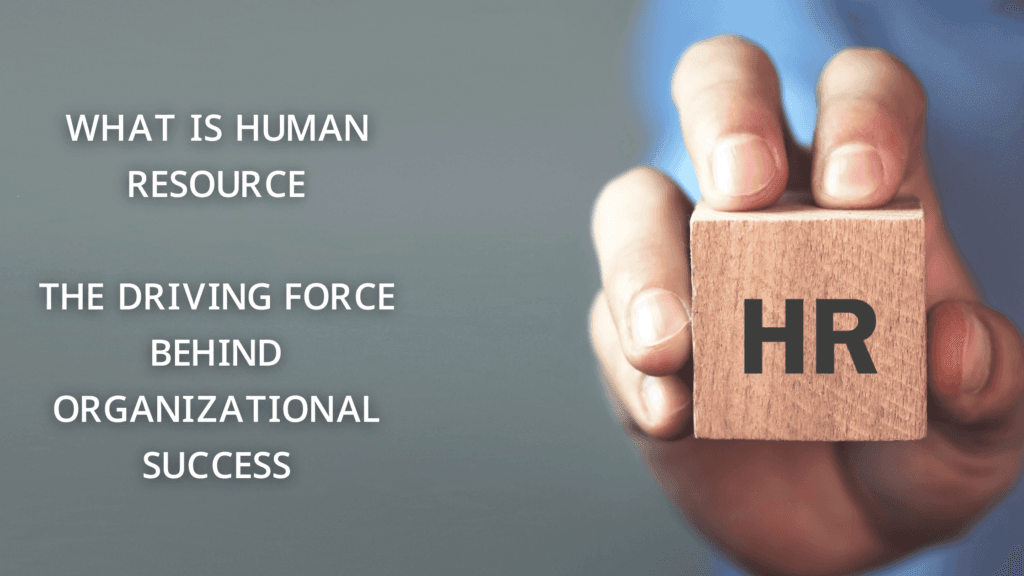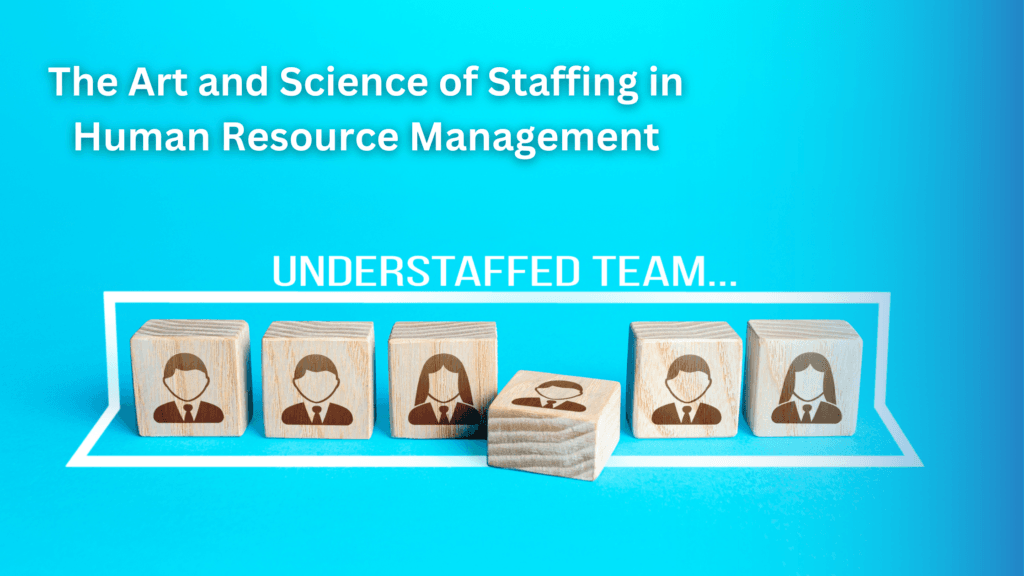In today’s fast-paced business world, one of the most valuable assets any company can have is its people. Behind every successful organization is a well-structured Human Resource (HR) department that not only manages employees but also plays a strategic role in driving growth. Whether it’s recruiting top talent, enhancing employee engagement, or ensuring compliance with labor laws, HR is essential in shaping the culture and future of a company.
Understanding what Human Resource truly encompasses can unlock the potential for long-term success and innovation in any business.
What is Human Resource?
Human Resource (HR) refers to the department responsible for managing an organization’s employees, ensuring that they contribute effectively toward business goals. It covers a broad range of tasks including recruitment, employee relations, compensation, training, and legal compliance. Rather than focusing solely on administrative duties, HR has evolved into a strategic partner that helps shape the future of a company.
Key Functions of Human Resource Management
Recruitment & Staffing
Recruitment is one of the most visible functions of HR. It involves finding, screening, and selecting candidates to fill vacant positions in an organization. Effective recruitment ensures that a company brings in skilled individuals who align with its culture and goals.
For example, if a company needs to hire a software engineer, HR will manage everything from posting job ads to conducting interviews. A well-executed recruitment strategy can save costs and reduce turnover. According to a 2023 SHRM study, 57% of HR professionals found hiring top talent to be a significant challenge. This highlights how crucial the staffing function is to organizational success.
Employee Relations & Engagement
HR also plays a critical role in managing relationships between employees and the organization. Positive employee relations contribute to job satisfaction and retention. By fostering a healthy work environment and resolving conflicts promptly, HR ensures the workplace remains productive.

Employee engagement is equally important. Engaged employees tend to be more motivated and loyal. For instance, companies with high employee engagement experience 21% higher profitability. HR teams often use feedback mechanisms such as surveys or one-on-one meetings to assess and improve engagement levels.
Compensation & Benefits
Providing competitive compensation and benefits is essential for attracting and retaining top talent. HR is tasked with designing salary structures and benefits packages that not only comply with legal standards but also motivate employees.
Here’s a quick look at salary trends in 2023 for key roles:
| Role | Average Salary (USD) | Benefits Offered |
|---|---|---|
| Software Engineer | $85,000 | Health Insurance, Retirement |
| HR Manager | $70,000 | Paid Time Off, Wellness Plans |
| Marketing Manager | $78,000 | Stock Options, Gym Memberships |
HR ensures that these packages are competitive within the industry and align with the company’s budget and goals.
Training & Development
Organizations that prioritize employee development tend to be more successful. HR teams design and implement training programs to improve employee skills and help them advance in their careers. This not only enhances individual performance but also benefits the organization as a whole.
For instance, companies that invest in continuous learning report a 30% increase in productivity. Employee development also plays a crucial role in talent retention, as professionals often seek opportunities to grow within their current organizations rather than look elsewhere.
Compliance & Legal Responsibilities
Ensuring compliance with labor laws and industry regulations is a crucial aspect of HR. This function involves maintaining updated policies and practices that adhere to local and national laws. Non-compliance can lead to hefty fines and legal complications. In 2022, businesses in the U.S. were fined over $225 million due to non-compliance with labor laws.
HR is responsible for ensuring that the company complies with regulations surrounding employee rights, safety standards, and workplace discrimination. This function is particularly important in heavily regulated industries like healthcare or manufacturing.
The Strategic Role of HR in Business Success
Aligning HR Strategy with Business Objectives
HR is not just about managing people; it’s about aligning the workforce with the organization’s goals. HR departments work closely with top management to ensure that human capital is effectively utilized to achieve long-term business objectives. For example, if a company’s goal is to expand internationally, HR will focus on recruiting talent with the necessary skills and experience for global markets.
Improving Employee Performance
HR plays a key role in managing and improving employee performance. This can be done through performance reviews, setting clear key performance indicators (KPIs), and offering continuous feedback. Many organizations are now using performance management software to track and measure employee progress more efficiently.
| Performance Review Models | Key Feature | Usage in Companies |
|---|---|---|
| 360-Degree Feedback | Multi-source feedback | 55% of Fortune 500 companies |
| Management by Objectives (MBO) | Focus on goal-setting | Common in SMEs |
| Continuous Performance Model | Regular check-ins and reviews | Growing in tech startups |
HR ensures that these systems are fair and help drive employee growth, ultimately improving overall organizational performance.
Enhancing Workplace Culture
A positive workplace culture leads to higher employee retention and job satisfaction. HR works on creating and maintaining a culture that reflects the company’s values. This involves promoting diversity, inclusion, and employee well-being. For example, organizations that actively invest in diversity are 33% more likely to outperform their competitors.

HR also develops policies that encourage work-life balance, mental health support, and a safe work environment, all of which contribute to a more engaged and productive workforce.
The Future of HR: Emerging Trends
As businesses evolve, so do the functions of HR. Here are some of the latest trends shaping the future of human resource management:
HR Analytics
- HR is increasingly using data to make informed decisions about hiring, training, and employee engagements
- Data Insight: Companies using HR analytics are 3.6 times more likely to report improved decision-making, according to Deloitte.
Remote Work Management
- Managing a remote workforce requires new strategies in communication, collaboration, and performance tracking.
- In 2024, 74% of companies offer flexible or remote working arrangements.
Diversity, Equity, and Inclusion (DEI)
Many organizations are increasing their focus on DEI initiatives to foster a more inclusive and innovative workplace. Research from McKinsey shows that companies with diverse workforces are 33% more likely to outperform their peers. HR is at the forefront of implementing DEI programs, from training sessions to policy changes, to ensure fair treatment and equal opportunities for all employees.
Human Resource management plays a vital role in the success of any organization by strategically aligning workforce management with business objectives. From recruitment to compliance, HR ensures that employees are motivated, engaged, and contributing to the company’s growth. As workplace dynamics shift with trends like remote work and data-driven decisions, the role of HR will continue to evolve, becoming even more critical in shaping the future of businesses.
If you’re interested in learning more about effective human resource practices and how they can elevate your organization, visit us for valuable insights, resources, and expert advice. Together, we can unlock the potential of your workforce and drive your business towards success!



